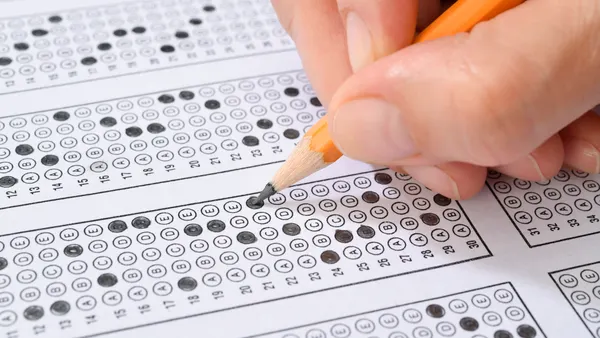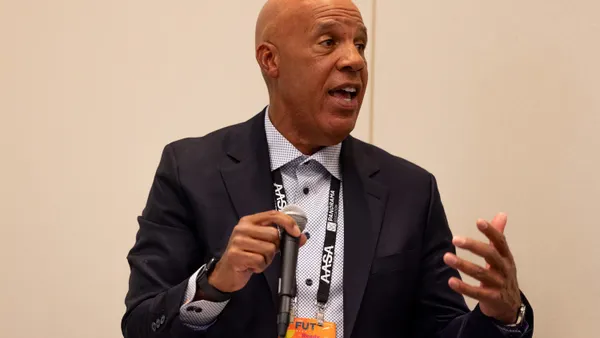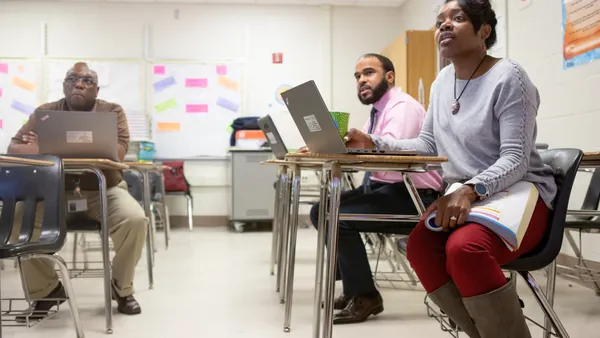Most clicked story of the week:
There’s more to music education — whether that involves learning an instrument or singing — than meets the ear. Its benefits can extend beyond the surface level, including helping students develop skills that improve literacy, music instruction experts say.
Learning music helps students become more sociable and better listeners, said Stephanie Benischek, the northwest representative for the National Association for Music Education’s general music council. It can also help them learn vocabulary and strengthen their attention span.
“We all remember how to sing the alphabet, and a lot of us learned the quadratic formula to the tune of ‘Pop Goes the Weasel’ in middle school. It’s a great way to learn things,” said Ryan Greene, the director of membership development for the Music Teachers National Association.
More changes from the Education Department:
- The Education Department is proposing the removal of a requirement for states to collect and report on racial disparities in special education, according to a notice published in the Federal Register on Friday. The data collection is part of the annual state application under Part B of the Individuals with Disabilities Education Act, which provides assurances that the state and its districts will comply with IDEA rules as a condition for receiving federal IDEA funding.
- The agency also quietly rescinded Obama-era guidance that called on states and districts to ensure English learners “can participate meaningfully and equally” in school and “have equal access to a high-quality education and the opportunity to achieve their full academic potential.” The 40-page Dear Colleague letter, issued in 2015, commended districts for “creating programs that recognize the heritage languages of EL students as valuable assets to preserve.” The department said in a statement to K-12 Dive that it rescinded the guidance because “it is not aligned with [Trump] Administration priorities.”
The shift in Title IX enforcement:
- Just a week after the U.S. Supreme Court ruled to restrict gender-affirming medical care for transgender minors in June, the Education Department began citing that decision in findings related to transgender access to athletics. Although the high court’s ruling in U.S. vs. Skrmetti did not directly involve education civil rights law, the Trump administration has relied on it to bolster its stance that Title IX can be used to exclude transgender students from teams aligning with their gender identities.
- Five large school districts in Northern Virginia were put on high-risk status and told their federal funding would only be distributed by reimbursement from the Education Department. The Aug. 19 announcement comes after the Education Department last month found the five districts violated Title IX through their policies allowing transgender students to use restrooms and locker rooms aligned with their gender identity. As the Trump administration advances its agenda to exclude transgender students from sports teams and bathrooms aligning with their gender identities, LGBTQ+ advocates and Democratic lawmakers warn that these funding restrictions are unprecedented and will cause financial hardships to the districts.













